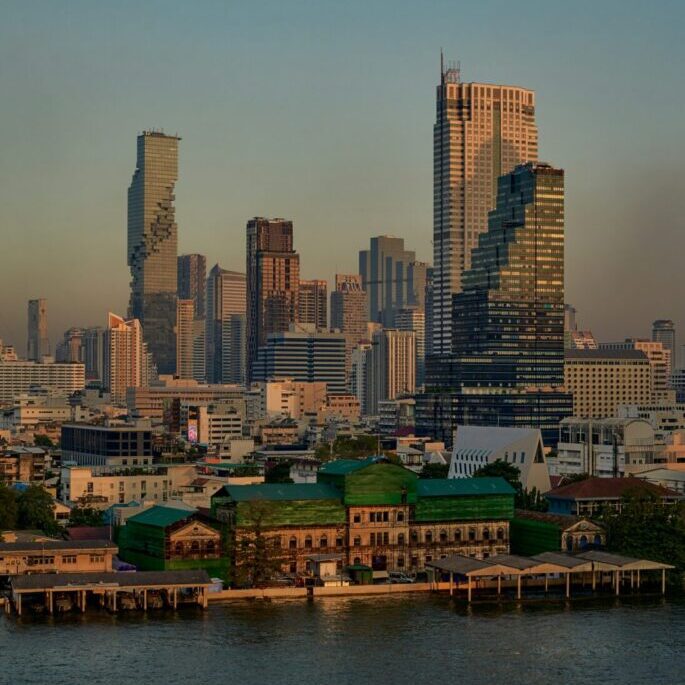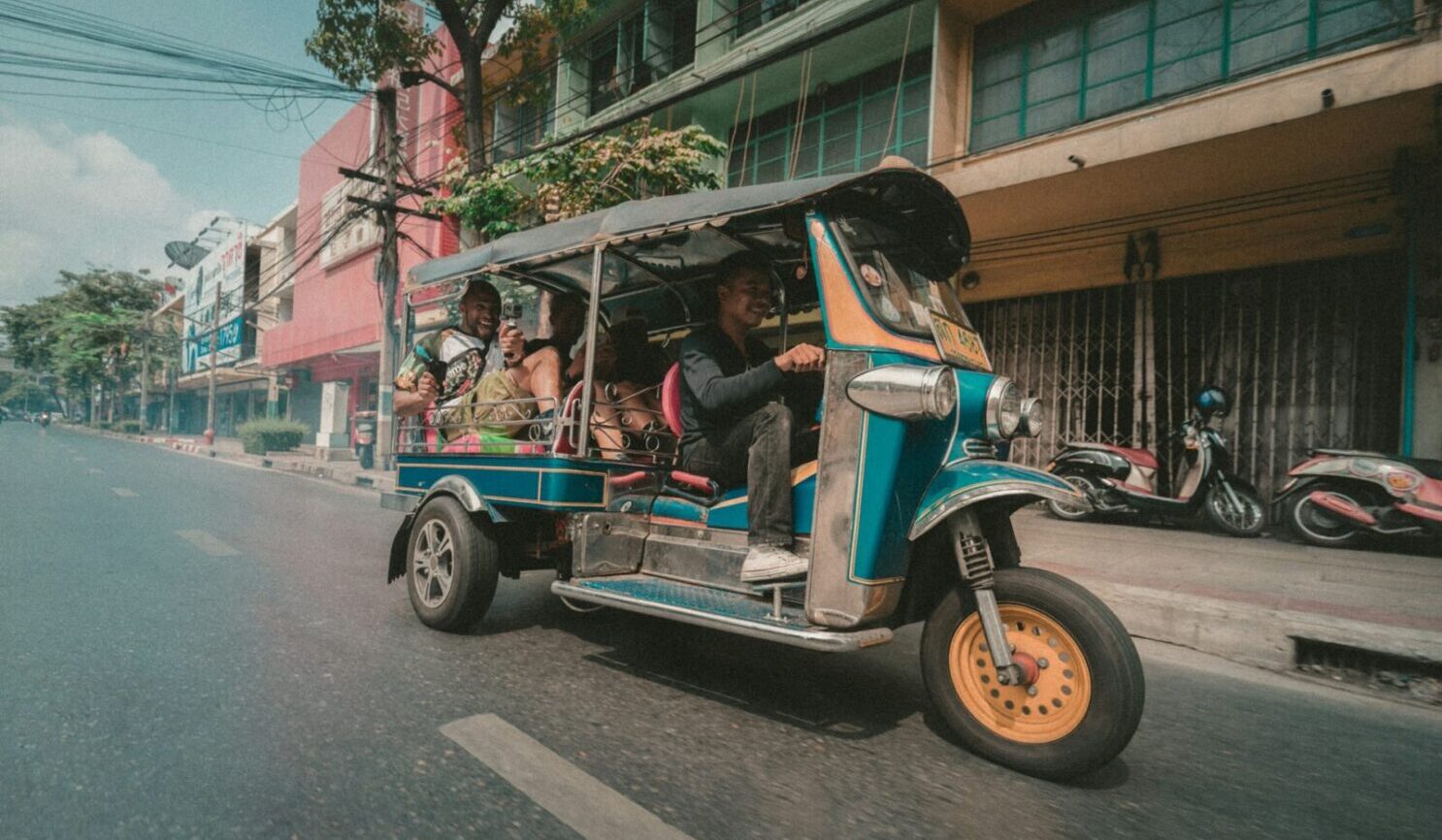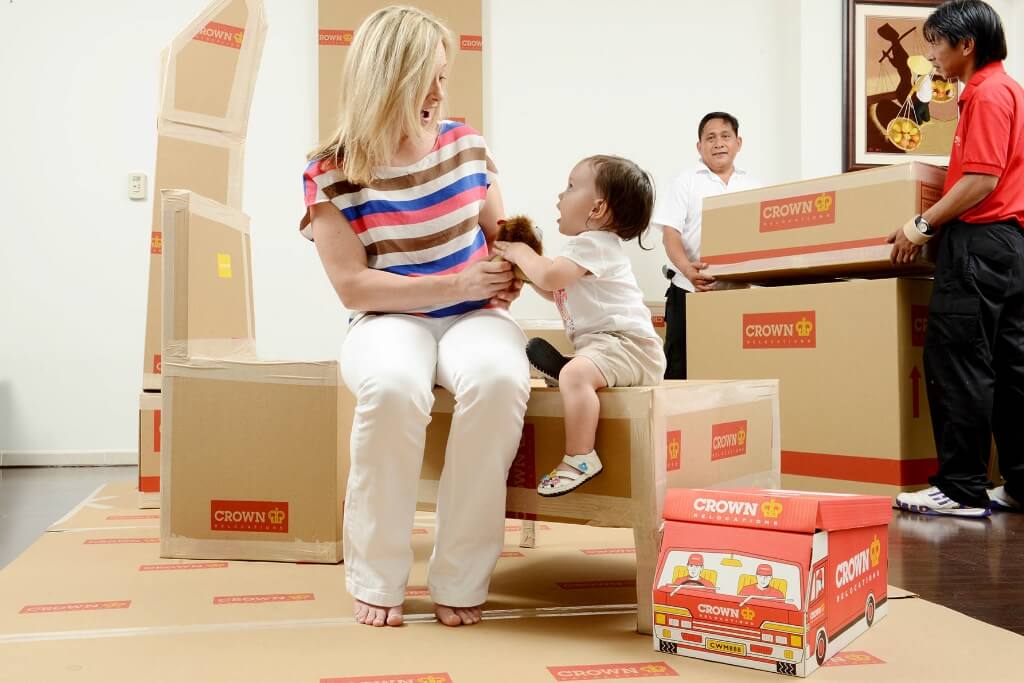Crown Relocations is NZ’s leading moving company.
Are you deciding to move to Thailand? Known as the “Land of Smiles”, Thailand has a warm and welcoming atmosphere. Thailand is known for its tropical beaches, lush rainforests and large areas of rice paddies. Exploring Bangkok’s bustling streets on one of the thousand tuk-tuks , discovering northern Thai culture in Chiang Mai. or enjoying tranquil beaches in the South are all possible. The contrast between modern and traditional is very noticeable in the capital, Bangkok. You can walk through the ancient city’s historic buildings and suddenly see the world’s most luxurious skyscrapers, blending the ancient and modern in a unique way.
Moving to Thailand offers New Zealanders a lower cost of living, quality healthcare and a warm tropical climate. The Thai people are known for their warm hospitality and friendly nature, which enables newcomers to settle in more easily and feel at home. Thailand attracts numerous expats, including digital nomads, with its unique culture, beautiful national parks, and delicious street food. The concept of Sanuk, a deep-rooted cultural idea focused on enjoying life and finding fun and humour in everyday moments, captures the essence of living in Thailand. Adjusting to a life in Thailand will still present some challenges. Language barriers, cultural differences, and local bureaucracy may be daunting at first. New Zealanders may also need time to adjust to the tropical heat. However, with the supportive expat community, sufficient preparation and an open attitude, Thailand is a rewarding place to call home.

Crown Relocations NZ makes moving to Thailand simple and stress-free with customised services to meet your relocation needs. We know every part of international relocations, in providing international shipping around the world, including to Thailand.
Whether you have a houseful of furniture or just a few precious items, Crown offers flexible shipping options to suit your needs and budget, ensuring your belongings arrive safely at your new home. Sole-use containers can be used for large items and households, while a shared container is a cost-effective option for smaller loads. We also offer air transport for priority items that need to arrive more quickly.
With Crown, you can leave all the paperwork to us. Our team handles all necessary clearances and entry documentation, assisting with Thailand’s customs regulations and requirements. We make sure your move complies with all regulations.
Our comprehensive moving services include transit protection insurance, a free relocation checklist, as well as assistance with relocating vehicles and pets. With Crown, you can go knowing that every aspect of your move to Thailand is managed with care and professionalism.
For an international moving quote, call our friendly team on: 0508 227 696 or complete our online form.
Imagine your team flourishing in their new Thai home, embracing the culture and thriving in their roles. At Crown Relocations, we make this vision a reality. Whether moving permanently or on a temporary basis, our worldwide expertise ensures your team, and their families, have a seamless transfer to Thailand.
We oversee every part of your team’s move from beginning to end, ensuring a smooth transition each time. Our consulting services are tailored to your company’s unique needs, helping you build a strategy that not only moves your employees successfully but also supports them throughout their transition.
Thailand’s relaxed work environment with longer lunch breaks offers a valuable work-life balance as well as opportunities for professional growth within your team. Our Mobility Specialists provide comprehensive support, from navigating immigration requirements to offering settling-in and orientation services.
Our settling-in services go beyond the basics. We help your employees and their families connect with their new home through a variety of ways according to their needs. This can include Thai language learning, house hunting, exploring local services, and even career support for partners, ensuring everyone can feel at home.
Contact our World Mobility specialists to find out more: call us on: 0800 243 578, or (+64) 9 415 7300. Alternatively email: crownworldmobility.nz@crownww.com or complete our contact form.

New Zealand citizens can move to Thailand, but they must obtain the appropriate visa. There is now the availability of applying for a visa online, since March 2024, with further information on the Royal Thai Embassy in Wellington, NZ. There are several visa types available, including various work, study and retirement visas. It’s important to check with the Ministry of Foreign Affairs of the Kingdom of Thailand to determine which option suits your needs best. Crown can help you navigate Thailand’s immigration system when relocating from New Zealand, making the whole process simpler.
Call us today on 0508 227 696 to find out how we can help you move easily to Thailand.
Relocating from New Zealand to Thailand can be expensive. Costs to consider include shipping costs, airfares, health insurance, and finding accommodation. However, once in Thailand, the overall cost of living is significantly more affordable than in New Zealand. Crown is best placed to help you enjoy a stress-free move at a reasonable cost. As well as packing and moving, we offer additional services such as transit insurance, international vehicle transport and pet relocations.
Let us take care of your international move to Thailand.
To find out how much it will cost, give our friendly team a call on 0508 227 696 or obtain a free quote online.
Moving to Thailand requires some preparation. Challenges can include adjusting to the tropical climate, overcoming language barriers, and organising daily life in a new country. However, many New Zealanders enjoy the transition, thanks to the supportive expat community. To adjust comfortably, learning to live with a humid climate for most of the year with high heat peaks is useful. Having places with air conditioning is also beneficial. The food is renowned for being spicy and hot. However, culinary offerings in Thailand include dishes from all over the world which can assist with the gradual adjustment to traditional food. Thankfully the concept of Sanuk (bringing a sense of joy and pleasure in whatever you do), calmness, serenity, and enjoying a good work-life balance are key qualities that make living in Thailand a true paradise. Crown provides comprehensive services to make the transition simple and hassle-free. offering help with packing, shipping, customs clearance, visa guidance, along with information about living and working in Thailand. To ensure a smooth, successful move to Thailand: call our friendly team on 0508 227 696 or fill in our online form.
Crown Relocations has a variety of international shipping options that can be tailored to meet your budget and relocation needs. Whether you’re shipping a few items, or a full household, we provide sole-use and shared containers, as well as air transport for urgent deliveries. With more than 55 years of experience, we guarantee a reliable and simple relocation experience, helping you every step of the way.
Talk with our friendly team on 0508 227 696 or request an online quote.
Popular expat locations include Bangkok, Chiang Mai, and Phuket. Bangkok, the capital, offers a vibrant cultural scene and numerous job opportunities, while Chiang Mai is cherished for its laid-back pace and stunning natural surroundings. Phuket is ideal for those seeking a coastal lifestyle, but tends to be full of tourists and large crowds, especially during the sunny season from December to April. Ko-Pha-Ngan or Ko-Tao can be two alternatives to Phuket, as they represent some of Thailand’s beautiful tropical islands full of people from all over the world, with superb diving opportunities. However, these two islands tend to have higher costs for services and products with limited supply, compared to cities on the mainland. There are also smaller cities, such as Chiang Rai and Hua Hin that offer more relaxed living.
Housing in Thailand is relatively straightforward, whether it’s buying or renting. Options range from modern apartments in the city to traditional houses in rural areas. Traditional Thai houses are mostly made from wood, bamboo and other natural materials. These buildings are distinguished by the architectural styles that vary across regions and reflect the country’s diverse culture and history. Renting is easy, but it’s crucial to review contracts and lease conditions. Although verbal agreements are binding, a written agreement is important to provide clarity as well as protection for both parties. Prices vary depending on the location but are generally lower than in New Zealand. When looking at purchasing condominium apartments it is important to note that foreigners can own them but only on the condition that no more than 49% of the units in the entire building are owned by foreigners.
Our team at Crown can help you find accommodation in Thailand as well, making your move even easier.
Thailand is renowned for having high-quality healthcare at much lower prices, with many people coming to Thailand specifically for various medical procedures. Bangkok is home to some of the best hospitals and many expats opt for health insurance to cover potential medical expenses. Despite developed cities, such as Bangkok and Chiang Mai, having high quality healthcare, there is still a certain level of inefficiency within the rural healthcare system. Thailand is also one of the highest-risk areas for the spread of dengue fever. This disease is well-known to those living in Thailand and requires immediate and specific treatment. The Thai government has been making efforts to improve healthcare access in rural areas through initiatives like the Universal Coverage Scheme, which provides basic health coverage to all Thai citizens.
Thailand offers diverse educational options for expats, with international schools being the top choice due to their globally recognised curricula and English instruction. These schools, mostly located in major cities, provide high-quality education but come with steep tuition fees, often ranging from $10,000 to $25,000 annually. Public schools offer a more affordable alternative but require fluency in Thai. Bilingual schools serve as a middle ground, offering instruction in both Thai and English at a lower cost. For higher education, many Thai universities, such as Chulalongkorn and Mahidol, offer English-language programs in various fields, attracting international students and meeting global academic standards. This range ensures suitable educational paths for different needs and budgets.
Opening a bank account in Thailand is relatively easy, and many local banks provide services in English. The local currency is the Thai Bath (THB). The cost of living is really low compared to New Zealand. Thailand is generally considered an affordable country to live in. The use of debit cards is highly recommended, with an exception to the few rare cases where the use of cash is explicitly required, especially in street markets. Be aware and careful to avoid money losses related to daily exchange rates. Use official bank exchanges or reputable money changers rather than exchanging any money on the street or with individuals offering “better rates”. The official Bank of Thailand website is useful to understand many different aspects of financial life and services.
Transportation in Thailand, contrary to expectations, is efficient. Major routes are served by public rail transportation or numerous bus services, including overnight buses equipped with sleeping berths for night travel. Bangkok’s transport system covers a number of different ways to travel around the city. The metro system is very efficient and connects all corners of the city at a low cost. The metro is often less crowded and preferred over road travel due to Thai people who tend to be more reserved and feel uncomfortable in tight spaces. City buses, however, are often delayed due to heavy traffic, causing people to opt for tuk-tuks or scooters, especially when travelling for urgent reasons. Using mobile apps like Grab is highly recommended.
Learning the Thai language is not essential, but English is not widely spoken, and the few people who do speak it are not fluent. Learning Thai can be quite difficult, but it is necessary for anyone who wishes to truly understand the culture and integrate more easily. The language barrier for those who do not know Thai means that communication, especially in a commercial context, tends to be very basic, sometimes limited to simple gestures that allow for understanding. The use of apps like Google Translate in more remote or rural areas is highly recommended to avoid misunderstandings whereas large urban and tourist areas will be familiar in interacting with English speakers. It is seen to generally take 1-2 years for the average English speaker to become fluent and proficient in Thai especially when surrounded by the language and practising daily. ThaiPod101 website can be a starting point, but asking for private lessons gives the final boost.
Crown also offers Thai language learning as part of our additional services, so you can be more confident when moving to Thailand.

Thailand has a large, welcoming expat community. There are many opportunities to make friends through interest groups, social events, and professional networks. Joining clubs and associations is a great way to connect and feel part of the community. Facebook groups are the best solution to make new friends or to find new colleagues from all over the world, as Thailand attracts many digital nomads. It is very easy to meet other expats in Thailand, thanks to the numerous events organised through platforms like InterNations. However, getting to know Thai people can be more challenging. This is mainly due to their very reserved nature, which makes them kind and polite but also very private. TheThailandLife website offers advice to make reaching out feel much less intimidating.

Moving to Thailand? Go knowing
Living in Thailand can be challenging, especially at first, as the contrasts between poverty and wealth are very pronounced, particularly in large cities. Bangkok offers a wide range of services, but in rural areas, these services may be lacking, where the population still primarily relies on agriculture and livestock farming. The climate can also be a barrier, with the rainy season bringing concerning storms and sudden downpours that may cause flooding. However, the hospitality and friendliness of the Thai people are unmatched, making it easy to settle in at your own pace. Experience the rich culture, historic architecture, unique food, and diverse landscapes. Living in Thailand can be a worthwhile choice for those who embrace its simplicity.
Ready to move? At Crown, we offer tailored services, from finding accommodation and local tips on your new home, to full door-to-door relocation. We ensure a smooth and simple transition into your new life in Thailand.
Go knowing that you can trust Crown to make your move simple and hassle-free. Call us on 0508 227 696, fill in our online quote request, or visit Crown Relocations NZ for more information.

Hi there, you’ve reached us outside of business hours. Please leave your name and number and we’ll be in touch with you soon.
Notifications